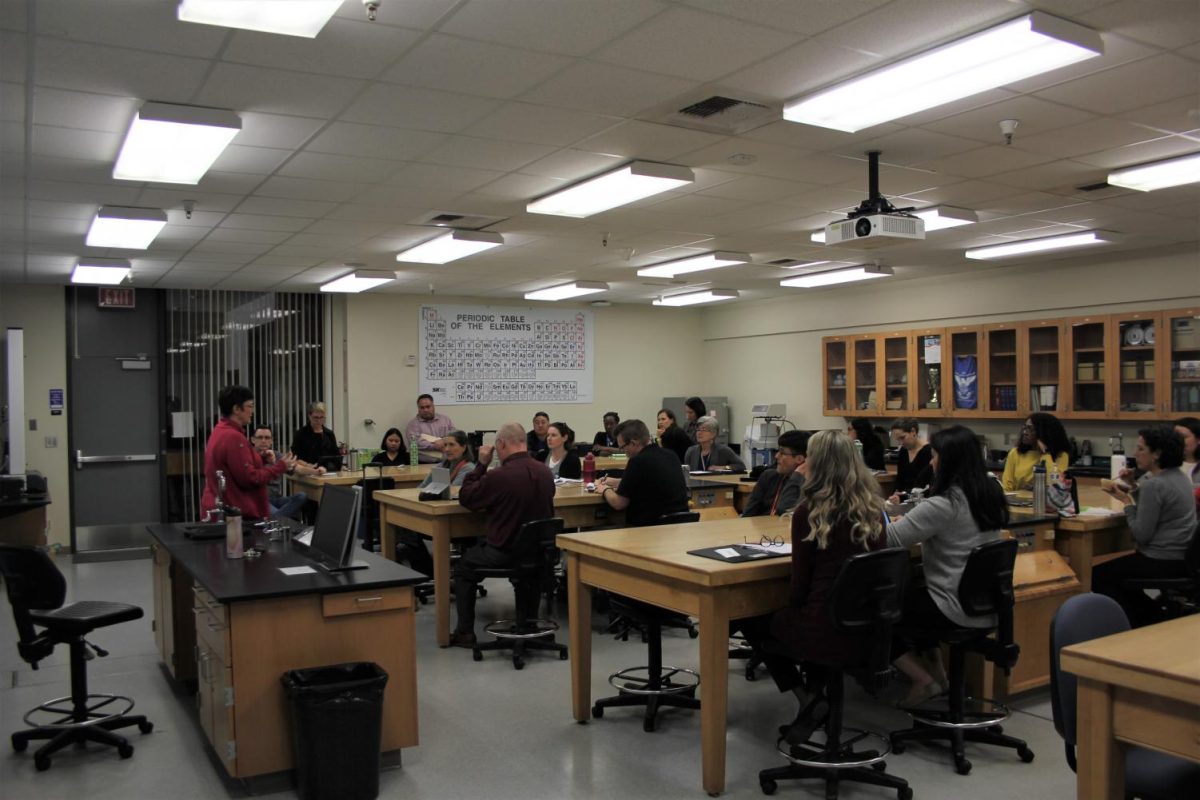Faculty meet to discuss instruction in the event of a campus closure
The meeting was held in order for faculty and instructors to discuss how they will continue classes if the campus does get shut down. They discussed the possibility of moving course work online for students’ access, if there is a campus closure.
Faculty members and administrators met on Tuesday to discuss possible ways to stay connected with students in the event of a district-wide closure in the wake of the coronavirus.
The meeting was led by biology professor Julie Oliver, also the president of the District Academic Senate, and Robert Montañez, vice president of Instruction and Student Learning. The main purpose of the meeting was for instructors to discuss and suggest ideas on how to continue classes if the campus is closed down.
“Let me set the parameter for why we are here, it is not to discuss or debate the decisions that are made,” said Oliver, as she opened the meeting. “It is to talk about instruction and how we are going to make good plans for ourselves and our students to attempt to continue a level of instruction, even if we have a closure.”
Oliver added that one of the first methods that would be pushed would be to utilize Canvas. Both she and Montañez stressed that flexibility was one of the most important things going forward.
There would be separate communications coming out at a broad level, and subsequent communications on a campus-to-campus basis following that, said Oliver. The main thing was to be prepared on how to keep in contact with students.
“The idea is to brainstorm ideas,” said Oliver. “Talk to people who teach in your discipline, and talk to people across the colleges who teach your discipline to share ideas.”
Oliver also recommended paying attention to professional organizations for ideas on what to do.
One of the concerns brought up was whether classes that were on ground could require students to do online work.
Oliver confirmed that this would be allowed.
“The State Chancellor’s office has given us broad leeway into applying for an addendum to allow for online work in any classes,” said Oliver. “Any instructor can teach online for any class deemed fit.”
Another potential problem to come up was classes that require more technical, hands-on instruction.
“In the technical side, where we’re actually building and making sets and learning to make the booths and the boards,” said Professor of Theater Arts Martin Flynn. “If we’re shut down there’s really no way I can do that, I have to have them there.”
In response to this, Oliver said that the teachers would have to get creative in conveying this. There would also have to be a lot of coordination with the State Chancellor’s Office, said Oliver.
The topic of students who may not have access to the internet was also brought up. Oliver said professors would have to be flexible in these cases and try to find solutions to ensure the students could still receive instruction.
One of the possibilities brought up prominently for staying connected was the video conferencing service Zoom, which professors have an account available through Los Rios. Students do not need to be registered on Zoom to join one of these conferences, said Oliver.
While Zoom is a video conference service, it would also be possible to listen in via audio, said Oliver. Other possible solutions, such as using the text messaging app Remind, were brought up during the meeting.
Oliver also brought up during the meeting that all courses provided by Cosumnes River College had a corresponding Canvas shell, but they need the instructors to activate them.
“I really want to stress to faculty to get their Canvas shells published,” said Oliver after the meeting. “Even if it is just to establish communication and distribution, it is important.”
Both Oliver and Montañez stressed after the meeting that there was no confirmation if there would be any closures.
There are 11 meetings scheduled over the next week. These information-sharing meetings will take place both on campus and at the Elk Grove Center.
“I would highly recommend faculty and deans to attend,” said Montañez. “We want to work together to support student learning and instruction.”

